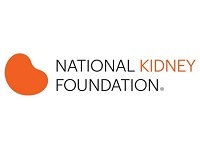 The National Kidney Foundation (NKF) has released a position paper, developed by 16 nephrology experts from 13 institutions, with recommendations designed to navigate future research and innovation addressing the most pressing barriers to kidney transplant access, organ availability, and long-term allograft survival in the USA.
The National Kidney Foundation (NKF) has released a position paper, developed by 16 nephrology experts from 13 institutions, with recommendations designed to navigate future research and innovation addressing the most pressing barriers to kidney transplant access, organ availability, and long-term allograft survival in the USA.
This ambitious agenda—according to an NKF press release—seeks to direct research investment to optimise equity, efficiency, and patient-centred outcomes, and maximise the benefits of transplantation across the country. Today, while nearly 100,000 people are on the waitlist for a kidney transplant, only 22,817 Americans received a kidney transplant in 2020, the release adds.
“While kidney transplantation provides the best treatment option for kidney failure to thousands of patients each year, the goal of universal access to this treatment remains elusive,” said lead author Krista L Lentine (Saint Louis University Center for Abdominal Transplantation, St Louis, USA). “Addressing the priorities outlined in this research agenda has the potential to transform kidney patient care by expanding opportunities for safe living donation, improving waitlist access and transplant readiness, maximising use of available deceased donor organs, and extending graft longevity.”
To assess the knowledge gaps amenable to more research, the NKF convened an expert panel to develop a research agenda aimed at advancing access to kidney transplantation for all patients who could benefit, with attention to reducing or eliminating racial and ethnic disparities, and supporting the goal of “one transplant for life” for organ recipients.
Participants, including nephrologists, surgeons, NKF leadership and patients, held a roundtable in 2019 and, through facilitated discussions, the panel developed seven priorities for research innovations along with 23 recommendations—which form the basis of the open-access paper published recently in the American Journal of Kidney Diseases (AJKD).
Research recommendations developed by the panel centre around seven key priorities:
- Expand living-donor kidney transplantation
- Improve management and readiness of the kidney waitlist
- Reduce the number of kidneys removed for transplant but never used
- Increase organ acceptance using novel technology
- Preserve, resuscitate, or evaluate kidney allografts before implantation
- Sustain one transplant for life
- Optimise transplantation for paediatric recipients
Recommended research targets are directed at key challenges within each priority, and span dimensions of educational interventions, decision science, molecular diagnostics, artificial intelligence (AI) and clinical trials. For example, given that approximately 20% of kidneys are discarded after recovery, the authors recommend research targets including studies of patient and clinician-directed education to foster understanding of the benefits of kidneys at risk for discard, biomarkers and machine learning (ML) systems to support organ acceptance decisions, and novel preservation solutions and ex vivo interventions to preserve and resuscitate vulnerable organs before implantation.
“One of our top priorities at NKF is to make transplantation available to everyone who needs or wants a transplant,” said co-author and NKF CEO Kevin Longino, who is also a kidney transplant patient. “These recommendations will help frame our research and funding initiatives to accelerate innovation, and create the solutions we need to make transplantation a reality for all.”












